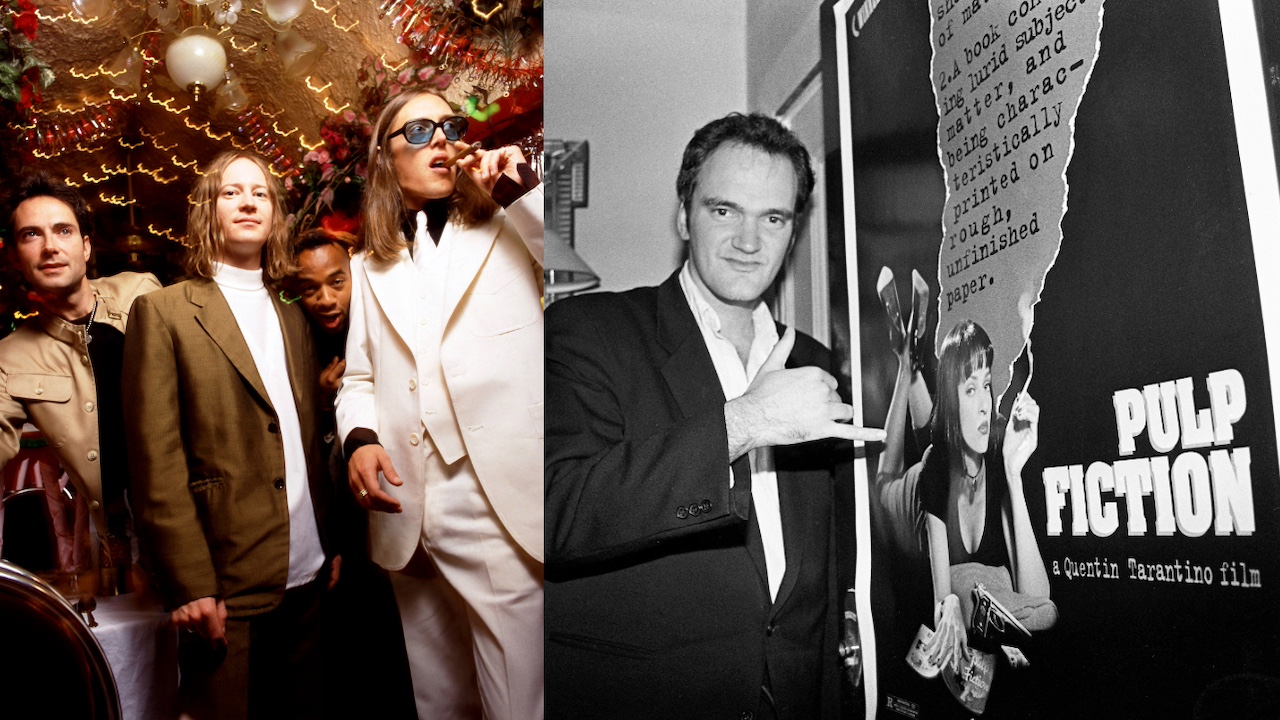“Quentin had it down to three tracks and he was going to bounce it off Uma Thurman and let her choose”: the story of how Urge Overkill’s Neil Diamond cover made its way onto the Pulp Fiction soundtrack
Girl, You’ll Be A Woman Soon became the Chicago quartet’s biggest hit, and there’s a few people they have to thank for it

The career of louche US rockers Urge Overkill got a huge jolt when their cover of Neil Diamond’s Girl, You’ll Be A Woman Soon was chosen to soundtrack a pivotal scene in Pulp Fiction, giving the Chicago quartet a mainstream hit and ensuring one of their songs is forever entwined with Tarantino’s masterpiece.
The film’s era-defining soundtrack was released 30 years ago this week, a few weeks before the director’s follow-up to Reservoir Dogs hit cinemas, and it remains an album that changed everything for Urge Overkill. They have a few people to thank for their inclusion. One, obviously, is veteran crooner Neil Diamond, who originally released the song in 1967. Urge Overkill were big fans, and not in an ironic way. They were actual fans. “We found a record of his named Velvet Glow And Spit,” the band’s Eddie Roeser told music site Pennyblackmusic. “We weren’t really aware that that song had been a minor hit and thought that was just a really bizarre song. Our version is very different compared to the original.”
The second person to thank, and someone Urge Overkill hold primarily responsible for their upturn in fortunes, is whoever was so unimpressed with their purchase of the band’s Stull EP, upon which Girl, You’ll Be A Woman Soon originally featured, that they dropped it off in a bargain bin for someone else to find. That someone ended up being avid crate-digger Quentin Tarantino, who discovered it in a record shop somewhere in Europe. “This was a long running gag for us for a while because some poor fucker thought that we sucked, or this record sucked and cashed it in for a dollar or two, or something and then Quentin Tarantino picked it up for 50p or whatever the currency is,” vocalist and guitarist Nash Kato laughed to Cuepoint. “We’ve always wanted to find the guy who thought the record sucked and changed the trajectory of our musical career.”
And then, final props to both Tarantino and his star Uma Thurman, who identified the song as the perfect soundtrack for the horrifying scene in which Thurman’s character Mia Wallace overdoses. ““The story we got from Quentin is that it was a pivotal scene,” continued Kato. “He had it down to three, possibly four tracks. So since it was Uma’s scene, he was going to bounce it off her and let her choose. I don’t know what the other songs were that we were up against. Apparently when she heard ours, she was like ‘This I can do.’ She sings and dances to it, and ODs, so it better be the right song!”
The song was chosen as the lead single from the Pulp Fiction soundtrack, propelling it to number 11 on the US Billboard Modern Rock Chart. The band are forever thankful. “The movie was such a global hit, as was the soundtrack,” Kato reflected. “One doesn’t necessarily guarantee the other. You can have a hit movie, but nobody buys the soundtrack, or vice-versa. But both were such big hits. That three minute cover that we pulled out of our ass took us around the world.”
Listen to the song below:
Sign up below to get the latest from Classic Rock, plus exclusive special offers, direct to your inbox!
Niall Doherty is a writer and editor whose work can be found in Classic Rock, The Guardian, Music Week, FourFourTwo, on Apple Music and more. Formerly the Deputy Editor of Q magazine, he co-runs the music Substack letter The New Cue with fellow former Q colleagues Ted Kessler and Chris Catchpole. He is also Reviews Editor at Record Collector. Over the years, he's interviewed some of the world's biggest stars, including Elton John, Coldplay, Arctic Monkeys, Muse, Pearl Jam, Radiohead, Depeche Mode, Robert Plant and more. Radiohead was only for eight minutes but he still counts it.


